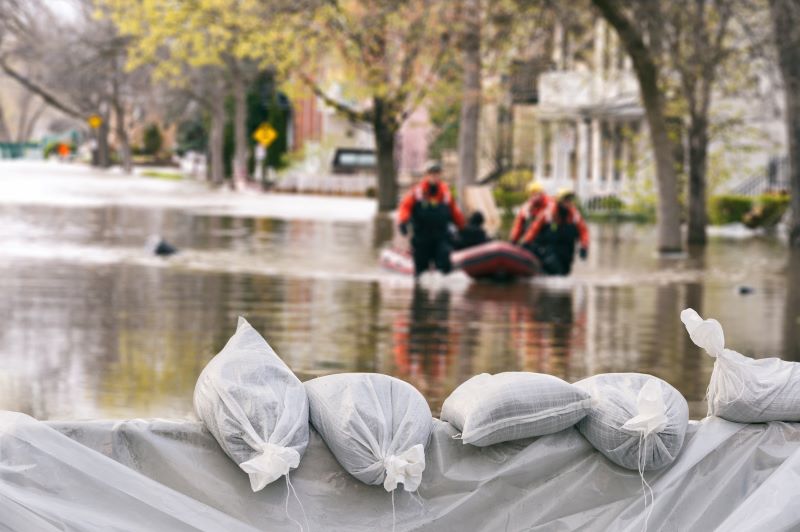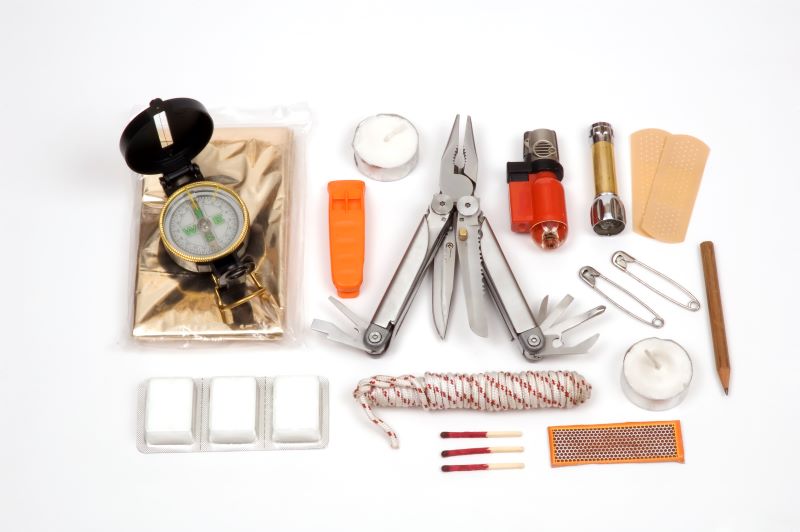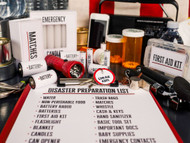Important Tips for Emergency Preparedness
Posted by Joel Pelina on Sep 15th 2022
Disasters and emergencies can strike at any time, from both natural and man-made causes. When disaster strikes, essential infrastructure and services get damaged or destroyed, leaving homes and families without power, clean water, or transportation. In this article, we feature several important tips to make sure you are prepared for whatever emergencies may come.

Create a Plan
The first – and arguably the most important – tip for emergency preparedness is to establish a plan well before any emergency occurs. A good emergency plan should incorporate several key elements:
- News and alerts. Establish a way to receive emergency services alerts and updates. Whether you plan to receive alerts via radio, television, internet, or cellular signals, make sure you have devices that can access and operate on battery power if AC power is not available. Check routinely for warnings and instructions from local and regional authorities.
- Shelter. Plan out where you can shelter from the emergency. This can vary depending on location, regional emergency types (e.g., hurricanes, earthquakes, tornadoes, etc.), and resources. Shelter examples include storm cellars, barns, basements, or even a friend or relative’s house in another area.
- Evacuation. If sheltering in place is not feasible, have a clear plan on how to leave the area and where you can go.
- Communication. Plan on methods to keep in touch with friends, family, and other loved ones. Have a hardcopy list of your friends’ and loved ones’ contact information, and a priority list for communication and updates.
- Supplies. An emergency preparedness kit should include essential items you can use or bring with you to survive for at least several days without outside assistance.
Create an Emergency Preparedness Kit
Included in a good emergency kit should be essentials for food, water, shelter, and other supplies necessary to survive for at least several days without help. Store the kit in a cool, dry location that is quickly accessible, and make sure to periodically refresh its contents to make sure nothing within is expired. Let everyone in your household know where the emergency kit is located.

- At least one gallon of clean water per person
- A water purification system or kit, such as a Multipure WET System.
- Several days’ worth of non-perishable food, such as canned goods, dried foods, and boxed foods
- A battery-powered or hand-crank radio; bonus if the radio also receives weather bands
- A flashlight or lantern, battery-powered or hand-powered
- A first aid kit with antiseptic, NSAIDs, bandages, and other essential medical supplies.
- Extra batteries for the items in the emergency kit
- A whistle, flares, and/or other means to signal for help
- A face mask to filter out contaminants in the air
- A plastic tarp to keep water off of items or to create a makeshift shelter
- Duct tape, twine, and/or other small items you can use to fasten or tie things together
- Sanitary wipes, disposable plastic bags, and bag ties for personal sanitation
- A hand-powered can opener
- Hand tools, included a wrench or pliers, saw, hammer, and/or spade
- Hardcopies of local maps
- Cell phone with additional power banks and charger
- A waterproof container with essential identification and financial documents, including IDs, licenses, insurance cards/policies, and bank documents
- Blankets and/or sleeping bags
- Matches, lighter, or other firestarting tools
- Eating utensils and plastic resealable containers
- Reusable water bottles
- Cash
Take Note of Special Needs
Don’t forgot to consider special needs specific for you and your household. Some of these items include:
- Prescription medications
- Eyeglasses, contact lenses, and associated cleaning wipes and solutions
- Medical equipment or mobility aids
- Pets, pet carriers, and essential pet foods or supplies
Emergency preparedness is something anyone can accomplish with some forethought and planning. Although emergencies often occur with little to no warning, you can improve the safety and security of yourself and your loved ones with the right plans and supplies in place to deal with the unforeseen.
References
- “Build a Kit.” Ready.gov. Updated May 10, 2022. https://www.ready.gov/kit
- “Emergency Preparedness.” National Fire Protection Association. Last accessed September 8, 2022. https://www.nfpa.org/Public-Education/Staying-safe/Preparedness/Emergency-Preparedness
- “How to Prepare for Emergencies.” American Red Cross. Last accessed September 8, 2022. https://www.redcross.org/get-help/how-to-prepare-for-emergencies.html
- “Low and No Cost Preparedness.” Ready.gov. Updated June 22, 2022. https://www.ready.gov/low-and-no-cost
- “Make a Plan.” Ready.gov. Updated August 31, 2022. https://www.ready.gov/plan

